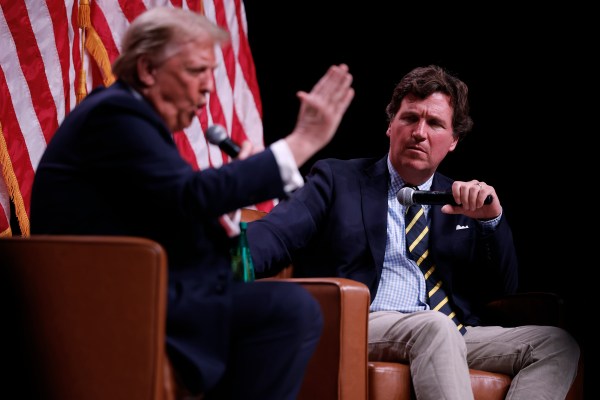Environmentalism has long been a cause championed more by the left than the right, and in our increasingly polarized times, the movement’s tone and demographic has shifted further leftward. Instead of campaigns promoting clean air and water, encouraging recycling, and subsidizing alternative fuel sources, progressives now call for “climate justice.” The Green New Deal, to take the most obvious example, reads more like progressive activist wishlist than a focused attempt to curb carbon emissions. Meanwhile, prominent organizations like the Sierra Club devote significant amounts of their time and resources to lobbying for divisive initiatives like defunding the police, reparations for slavery, and abortion-on-demand rather than serious, focused environmental policies.
On the other end of the ideological spectrum, polls consistently show that millennial and Gen Z conservatives are much more concerned about environmental issues than older conservatives. According to a November Pew poll, 52 percent of Republicans between the ages of 18 and 38 think that climate change is a serious issue that needs to be addressed. A Reuters poll from last August places that number at 67 percent for Republicans between the ages of 18 and 34—an 18 percent rise in the past half decade alone.
But these young environmentally minded conservatives take a much different approach from their progressive counterparts. Where the left pines for a centrally planned top-down approach, those on the right seek more market-based solutions. One such group, the American Conservation Coalition—a leading student-run advocacy group “dedicated to educating and empowering conservatives to re-engage on environmental conversations”—recently released its American Climate Contract, an attempt to articulate a conservative alternative to left-wing environmentalism. It is a detailed statement of purpose outlining a range of market-friendly policy solutions to help combat rising global temperatures, and has already been embraced by a slew of top GOP lawmakers. It stands in stark contrast to progressive initiatives like the Green New Deal or the Obama-era regulatory bureaucracy.
“It should not be ‘Green New Deal or bust,’ and it should not be ‘solve climate change in 2020 or bust,’ because we keep doing that every year and it’s always bust,” says Benji Backer, the ACC’s 22-year-old founder and current president. “If it’s bust every year, then what progress are we making? Trying to rope in an entire platform of literally dozens of other issues completely derails the effort, and it signals to the rest of society that it’s not actually about the environment to these people, which it often isn’t.”
Backer argues that the highly publicized debates over divisive and widely unpopular “climate justice” initiatives like the Green New Deal have done material damage to the environmentalist cause, distracting from bipartisan policies that could pass with support from across the political spectrum, such as modernizing America’s energy grid, giving tax credits to renewable energy, and a range of other sustainable policy inducements. “The future is in clean technology and innovation-based solutions to climate change,” he says. “We want to make it very apparent that this is not just a liberal issue. This is something that conservatives have talked about for a very long time.”
The idea of environmentalism as a “conservative” issue has been one of ACC’s organizing principles since its inception in 2017. The organization recently ran an ad on Fox News featuring clips of Ronald Reagan and George H.W. Bush interspersed with a call for Congress to take environmental concerns into account in crafting future coronavirus recovery bills. (Backer distinguishes this approach from the Nancy Pelosi-led Democratic opportunism in the early coronavirus relief legislation, saying that ACC’s ideal policies wouldn’t be implemented until the country is “coming off of the worst of COVID when we’re hopefully getting back to work,” using the “economic downturn related to COVID to invest in our future” by including “sustainable solutions” in the inevitable future stimulus bills.) “Protecting the environment is fundamentally conservative,” says Quill Robinson, the group’s vice president of government affairs. “Our parks, natural resources, and natural spaces are our heritage. Protecting our heritage and ensuring that future generations have the opportunity to enjoy it should speak to all conservatives.”
Still, it’s an issue that can be at odds with conservatives’ traditional support for business and low regulation, and so many conservatives remain skeptical. When House Minority Leader Kevin McCarthy (R-California) announced a relatively modest package of environmental bills aimed at funding carbon capture technology and planting trees to sequester carbon emissions, he was harshly criticized by a number of influential conservative groups. The Club for Growth went so far as to accuse McCarthy of “trying to get the support of green socialists” through forwarding “liberal environmental policies,” and refused to endorse anyone who voted for the package.
“I knocked on thousands of doors to try and pass the first ever revenue-neutral carbon tax in Washington State,” Robinson tells me. When I-732 (the 2016 ballot initiative in question) failed, Robinson soured on the idea: “If the golden calf of climate policy can’t pass in uber progressive-enviro Washington, it’s not going to happen nationally,” he says. “Economically, a carbon tax makes sense, but the policy is mediocre and the politics are awful. Democrats want to spend the revenue—which is why [Governor Jay] Inslee opposed [the 2016 initiative] in Washington—and any good fiscal conservative will reject a tax hike.”
Other young conservative activists are more optimistic. “The people who are really invested in the climate dialogue are in virtual consensus that a carbon price is the way to go on this,” says Kiera O’Brien, the founder and president of Young Conservatives for Carbon Dividends, an activist group run by predominantly college-aged conservatives that advocates for the implementation of a carbon tax. “We know the market is the most efficient way to sort out disputes in industry, and that’s why we support a price on carbon over anything else and believe that it’s actually the true conservative plan: It doesn’t use the government to pick winners and losers.”
This is one of the primary arguments made by conservative proponents of carbon pricing: The tax-credits-and-investment approach to fighting climate change favored by organizations like the ACC are really a form of government planning, although less coercive and more amenable to limited government than its left-wing alternative. “If it looks like, say, wind is doing well, and we invest in wind, we might be picking wrong,” says O’Brien. “Because maybe in two years, another organization creates some incredible technology that allows us to innovate and reduce emissions faster. I don’t want the government to basically crowd them out of the market by betting on the wrong technology.” Alternatively, O’Brien argues, a carbon tax harnesses the Hayekian spontaneous order of the free market: “It moves the market incentives towards green technology and clean technology generally,”she says. “It’s not us deciding which industries will win or companies will win, it’s levelling the playing field and removing the market externality.”
It remains to be seen what a conservative approach to environmentalism would look like in terms of a material legislative agenda. But in contrast to the reflexive skepticism about environmental concerns from many Republicans in recent decades, it’s increasingly clear that it will look like something. If the polls are correct, Republicans can no longer afford to ignore the issue. And this, at the very least, is cause for cautious optimism. “We’re working with young conservatives because we know that they’re the future of the movement,” O’Brien says. “People are ready to step up. They understand the problem, they understand the science and they’re ready to talk about solutions.”
Nate Hochman (@njhochman) is a summer Intercollegiate Studies Institute fellow for The Dispatch.
Photograph by John Greim/LightRocket via Getty Images.






Please note that we at The Dispatch hold ourselves, our work, and our commenters to a higher standard than other places on the internet. We welcome comments that foster genuine debate or discussion—including comments critical of us or our work—but responses that include ad hominem attacks on fellow Dispatch members or are intended to stoke fear and anger may be moderated.
With your membership, you only have the ability to comment on The Morning Dispatch articles. Consider upgrading to join the conversation everywhere.